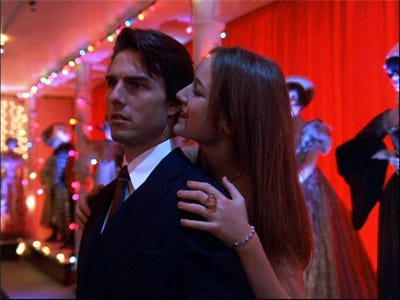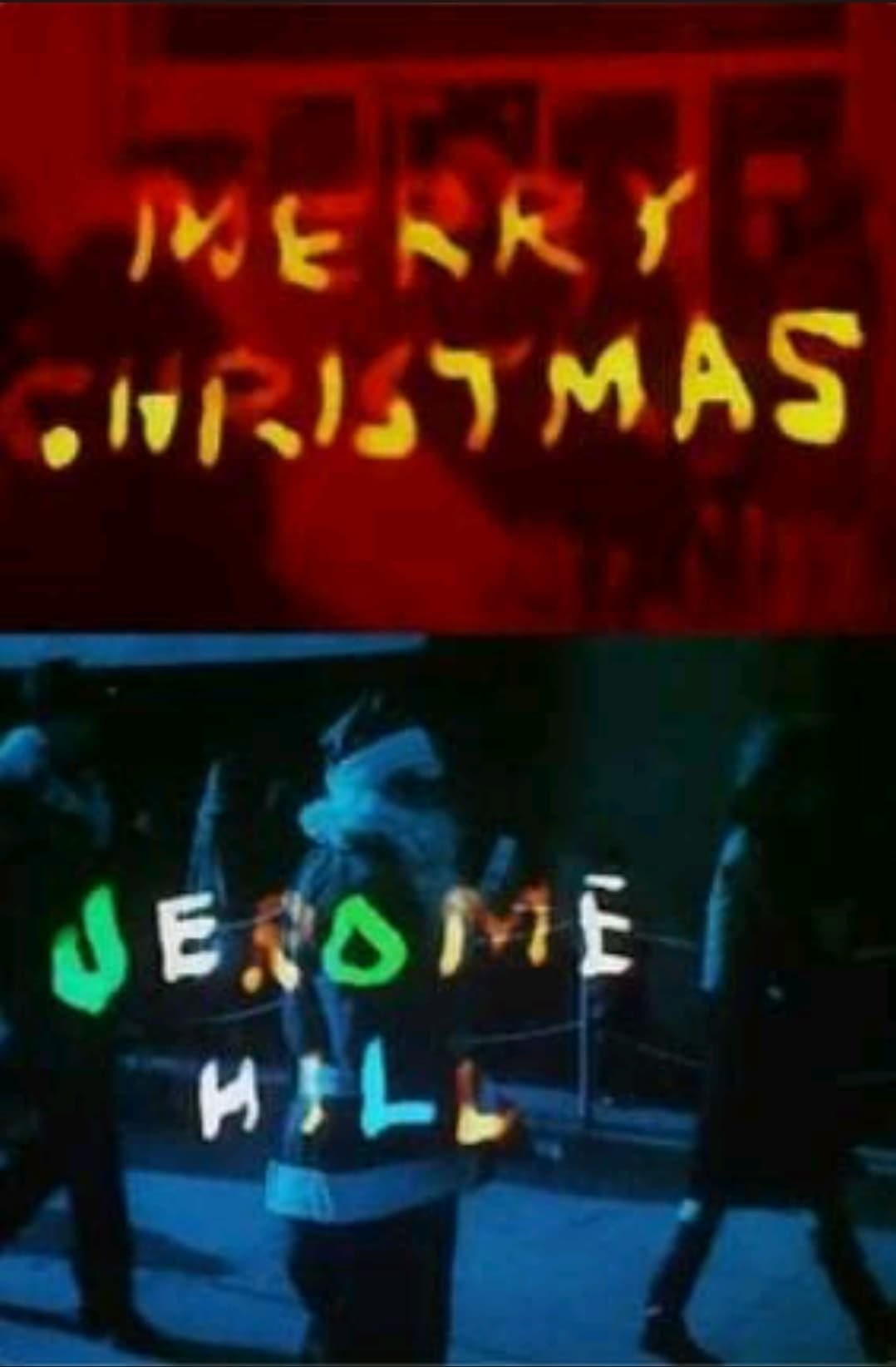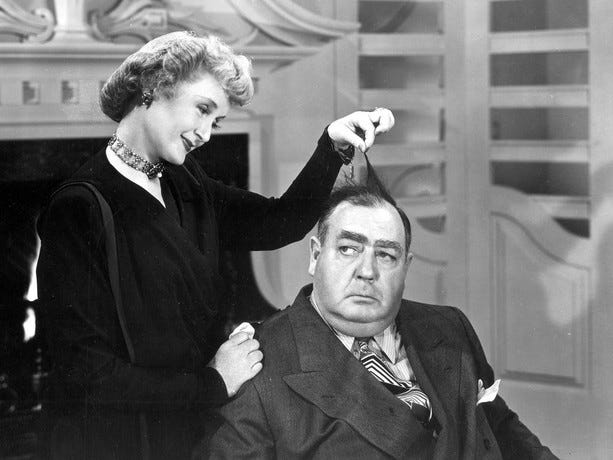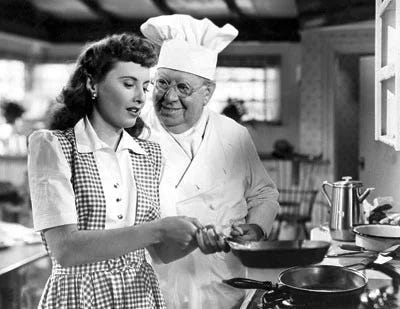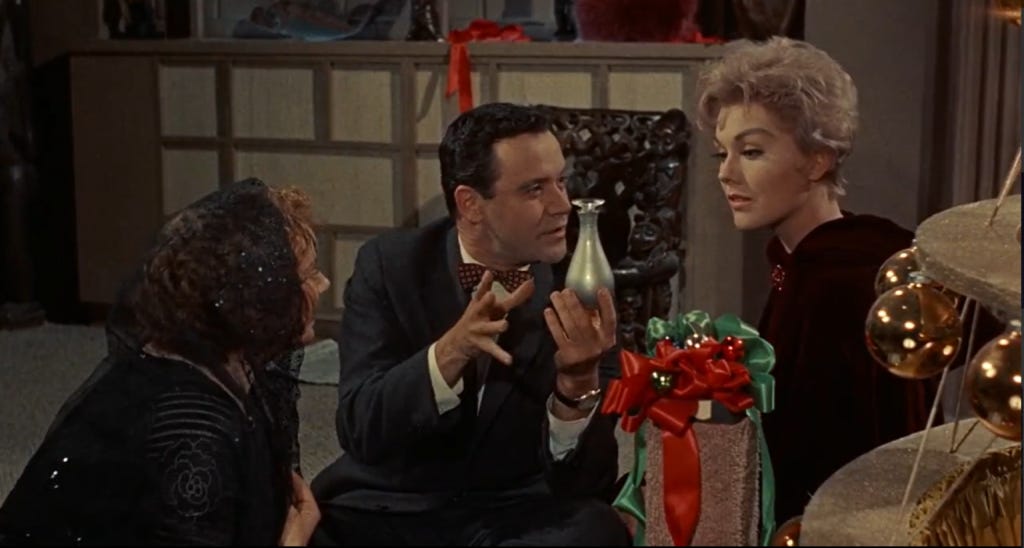The Discerning Person's Guide to Underrated Christmas Movies
A classic guide from fifteen years ago
The following was published in The L Magazine (R.I.P.) on December 11, 2009, edited (and title created) by the great Mark Asch. The article still works well if you’re looking for recommendations, and it is no longer available online. It also gives you a sense of how films enter the Christmas repertory over time, since then it was slightly subservisive or at least unexpected for Jonathan Rosenbaum and David Schwartz to call Eyes Wide Shut a Christmas movie.
The Discerning Person's Guide to Underrated Christmas Movies
by Miriam Bale
Holiday traditions are funny. Once something sticks we get a little superstitious. It's a Wonderful Life is a prime example of something that took hold—when it was in the public domain and TV channels screened it often—and now we just can't let go. Meet Me in St. Louis is a personal favorite, yet that too gets played out at this time of year. The frequent viewings numb us to the content; we forget that these films about angels getting their wings and families coming together are also about suicide attempts and six-year-olds mass decapitating snowmen. That seasonal spirit is complex.
In honor of some less-celebrated holiday favorites screening in New York this season, like Whit Stillman's Metropolitan (full disclosure: a screening I organized), I asked other critics, programmers, and filmmakers about films they consider underrated holiday favorites:
Whit Stillman, director of Metropolitan
I'm afraid my true favorites are the overrated ones—The Shop around the Corner, Miracle on 34th Street (the original) and It's a Wonderful Life (two with Jimmy Stewart, which seems appropriate)—before the start of shooting Metropolitan the cinematographer John Thomas and I watch and discussed scenes from Wonderful.
The problem with the underrated is that, we've probably not seen them—but I recall enjoying Bill Forsyth's Comfort and Joy one Christmas in the 80s.
Chris Eigeman, star of Metropolitan
The films that truly make me think of the holidays are really the ones I watched as a kid (and will always watch when they are on), and they are those Rankin/Bass stop-motion TV movies like Rudolph, and the one with Fred Astaire. I know, this isn't what you're looking for (and given this logic, I should just submit the Channel 11 Burning Yule Log as my favorite film). But they are much more evocative than any other film for me.
Jonathan Rosenbaum, author of Essential Cinema: On the Necessity of Film Canons and most recently author/curator of The Unquiet American: Transgressive American Comedies from the USA
Eyes Wide Shut: People don't always like to admit this, but holidays are often periods when lives become unmoored and destabilized (which is why the crime rate tends to go up then, especially involving family members), and this is certainly what Kubrick's last feature is all about. And it's important to bear in mind that it's both members of the marriage who become unmoored and destabilized, even though we see much more of the husband than we do of the wife. The Christmas trees and decor that we see everywhere only serve to underline the disequilibrium.
Kent Jones, Executive Director of World Cinema Foundation, author of Physical Evidence: Selected Film Criticism, and director of Val Lewton: Man in the Shadows
The first film that comes to mind is A Holiday Affair with Robert Mitchum and Janet Leigh. Then, Remember the Night, but how underrated is that finally? And then, what about Holiday? It's not often thought of as a holiday film, but it is, and it's a great one.
Jake Perlin, Associate Film Curator, Brooklyn Academy of Music and founder of The Film Desk
Not only a favorite Yuletide film (which would also include Gremlins, Kren's 9/64 O Tannenbaum or George Kuchar's Christmas videos), but one of my favorite films period is Jerome Hill's Merry Christmas (1969). For three perfect minutes, a hand-painted Joseph and donkey mingle amongst live-action scenes of New Yorkers rushing about, shopping, darting in and out of the Algonquin, taking no notice of the lost, holy visitors. The final tilt skyward as animated snow begins to fall feels wonderful and wistful, always interchangeable emotions when observing the city this time of year.
Richard Brody, Film Editor, the New Yorker and author of Everything is Cinema: The Working Life of Jean-Luc Godard
I'm thinking of a film that's not underrated at all (any more) but which turns on a Christmas tree and a misjudged Christmas present: All that Heaven Allows; and one which was never underrated at all but in which everyone goes up and sees each other between the holidays, The Apartment (how much again depends on the wrong present).
David Schwartz, Chief Curator, The Museum of the Moving Image
I can't resist going with that champion of underrated films, Eyes Wide Shut, with its perverse and pervasive Christmas theme, which functions as critique of capitalism, playful twist on the Schnitzler novel's Jewish subtext, constant source of atmospheric lighting from within the sets... all while engaging with the holiday's themes of childhood and rebirth. Of course, Kubrick's earlier holiday gift was Paths of Glory, which was released on December 25, 1957, causing Bosley Crowther to exclaim "What a movie to open on Christmas."
Dave Kehr, film critic for the New York Times
I'd cast a vote for The Cheaters, a 1945 Republic production directed by one of that studio's B western stalwarts, Joseph Kane, this time working with a cast of major studio supporting players (Billie Burke, Eugene Pallette, Raymond Walburn) and a budget big enough to permit the construction of two elaborate interior sets, which Kane explores with his usual taste for spatial complexity.
The film is a vehicle for Republic's reigning "real actor," Joseph Schildkraut, a Max Reinhardt veteran who played Judas in DeMille's King of Kings and the philandering clerk in The Shop around the Corner(a far greater holiday movie than this, but one I suspect you are already familiar with) He's a broken-down Broadway actor who is adopted as a Christmas "charity case" by a wealthy Fifth Avenue family (straight out of 30s screwball), but after a couple of reels of comedy the picture turns fairly dark when Schildkraut discovers that the family's wealth is based on having cheated a forgotten Broadway actress (Ona Munson) out of a $5 million inheritance. The family tries to make things up by inviting the actress to join the holiday celebration at their country estate, but Schildkraut shames them into coming clean by delivering a brilliant, boozy rendition of "A Christmas Carol." To Kane's credit, the film is never the cozy heart-warmer the front office clearly intended it to be, but something far more discomfiting and original.
Molly Haskell, author of the essential feminist film criticism text, From Reverence to Rape. Her newest book is Frankly My Dear: Gone with the Wind Revisited
Susan Slept Here (1954): Juvenile delinquent played by Debbie Reynolds is a Christmas Eve present to screenwriter Dick Powell, a supposedly 35-year-old screenwriter (35 was the old 65 in Hollywood) in need of inspiration. I was 14, and this creepily fun romantic Tashlin comedy fanned the flames of my Oedipal passion. Reynolds wins, of course, over age-appropriate rival Anne Francis.
Andrew Sarris, author of the essential American auteurist film criticism text, The American Cinema: Directors and Directions, 1929-1968
The Holly and the Ivy (1952) stars Ralph Richardson, Celia Johnson, Margaret Leighton and Denholm Elliott in the story of a Christmas eve family reunion climaxed by several emotional discoveries about a cleric's three grown children. I've always loved this movie, which has a great deal of grown-up wit and humor, and have no idea why it remains unseen and unrevived, instead of becoming a holiday favorite.
The Self-Styled Siren, writer of the self-titled, essential blog on classic film and co-programmer of the upcoming "Shadows of Russia" series on TCM
Two Family House (Raymond De Felitta, 2000) So, you were expecting the Siren to name something old. Well, almost all the old Christmas pictures are quite well known, and the ones that aren't, like the pitch-dark Christmas Holiday, don't sing Christmas to her. The Siren once did a post about dark Christmas scenes in movies, but in truth she still weeps over Alastair Sim awakening on Christmas morning to find the ghosts did it all in one night. So, Two Family House suits her much more: a deeply compassionate movie about a big lug who has an unexpected, but deep and sincere, yearning for a little art, love and beauty in his life. The art is in the form of the singing career his hidebound, shrewish wife won't let him pursue. The love and beauty comes from an Irish woman and her infant son, who live upstairs in the two-family house of the title. De Felitta treats even his least lovable characters with understanding; their prejudices don't make them gargoyles, just sad, limited and cut off. But like all great Christmas movies, this one centers on good people who must move beyond their workaday ways of dealing with life and find a greater, more humane and expansive spirit within. And, also like other Christmas movies, it ends on a Christmas night that finds their dreams resurrected.
Melissa Anderson, member of the New York Film Festival Selection Commitee, and the film critic that Inrockuptibles magazine has dubbed "l'heroine malheureuse"
Christmas in Connecticut (1945, Peter Godfrey): Barbara Stanwyck stars as ladies' magazine columnist Elizabeth Lane, a Martha Stewart-like goddess of the domestic arts who, in reality, doesn't even know how to boil water. For most of the film, Stanny must participate in a yuletide publicity stunt, nerves frazzled-desperate, frantic behavior that will resonate with anyone who's ever had to pretend that Xmas with the family is sacred togetherness time.
Christmas on Earth (1963, Barbara Rubin): Only 17 when she made this little-seen, taboo-breaking classic, Barbara Rubin's original title for her film was Cocks and Cunts. We see a lot of both, especially when Gerard Malanga goes AC/DC.
Bruce Goldstein, Director of Repertory Programming, Film Forum and founder & co-president, Rialto Pictures
To me, holiday movies don't necessarily have to have the holidays in them. But they do have to be comfort movies, preferably b&w; and more than 60 years old. Remember the Night would be one of my top choices, along with Lubitsch's The Shop Around the Corner, with James Stewart and Margaret Sullavan—maybe not underrated, except as a "holiday" movie. Has there ever been a greater romantic comedy? The answer is no. And the holidays do make an appearance at the end of the picture. I love it so much that I would have included it in my "Madcap Manhattan" series—except that it takes place in Budapest.
Compiler's note: Madcap Manhattan runs at Film Forum December 11-January 5 and includes Holiday, Miracle on 34th Street, and The Apartment.
And finally, Miriam Bale, curator, contributor to Film Comment and The L, and querent/compiler
My favorite holiday movies are my favorite New York movies, too. Maybe it's a naive belief of someone born in a sunny state—that the holidays are about tinsel-cheap magic, and that magic can be summoned by the combination of snow and lights, especially fake snow and skyscrapers at night. There are no real holidays and there's just one fake snow scene in The Royal Tenenbaums (made by two Texans), at exactly the moment when a short, sweet memory becomes tinged with disappointment and betrayal. Wes Anderson used to always release his films on Christmas Day. Makes sense. And every December in New York I can't help thinking about, yes, Whit Stillman's Metropolitan, with its seasonal whirl of parties, taxis and tuxedos punctuated by pious moments at midnight mass.
From era-less uptown to a vanished and slightly embellished bohemia downtown: Bell, Book and Candle (1958) is about actual magic in an eccentric family: Greenwich Village beatnik witches who all hang out at the Zodiac Club (a location later recreated by Godard). Kim Novak gives her bongos-playing brother (Jack Lemmon) some records and he gives her a love spell. "I want him for Christmas," she says of Jimmy Stewart, before humming her spell. The elliptical romance-in-the-snow scene that follows makes the viewer feel as hypnotized as Stewart.








